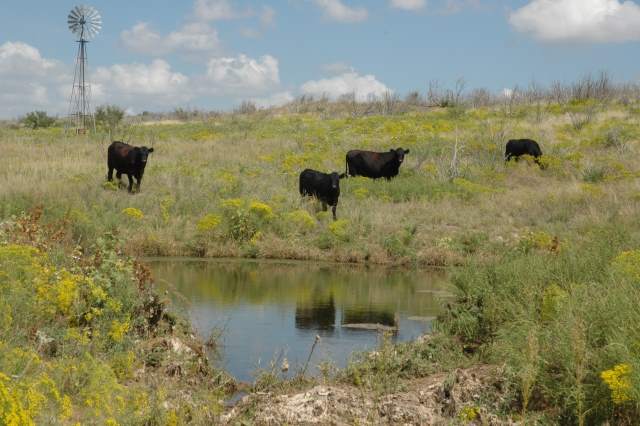November 1, 2015

When I was a kid, a young couple moved in down the road. Returning to nature they were, and they brought some ideas with them that seemed awfully misguided to me. “Don’t you know cows are destroying the planet?” said the young woman in her best accusatory tone.
I didn’t know it then and I still don’t know it, because they weren’t and they aren’t, at least when properly managed. Now, some research from Texas A&M AgriLife adds to that body of evidence.
This research is unique. It’s the first attempt to apply a net emission lifecycle analysis to the question of whether or not cow-calf production on perennial pastures is a major contributor to global warming by producing methane. The beef business first learned about lifecycle analysis when NCBA released the results of its sustainability work several years ago. That effort showed that beef producers have become more efficient over the years and that beef production is indeed a sustainable activity.
Like many of you, I am skeptical of the global warming debate. I don’t doubt that the data show our climate is changing. But blaming it on humans is intellectually dishonest. Likewise, I think many of those espousing “sustainability” don’t really know what that means.
But here’s the thing: many of our consumers think they do know what sustainability means, even if they understand it only at a superficial level. And that means, just like my conversation with our new neighbors those many years ago, we’d better be prepared with the truth, as defined by legitimate science rather than hyperbole, to defend our livelihood.
That’s where the Texas A&M research fits in. “Contrary to other publications claiming cow-calf farms are the most significant GHG (greenhouse gas) emission source in the beef production link, our results show that cow-calf farms converting to multi-paddock grazing in the Southern Great Plains region are likely carbon sinks,” said Seong Park with Texas AgriLife Research in Vernon, Texas, one of the scientists on the project.
This occurs because, compared with continuous grazing, adaptive multi-paddock grazing produces a higher-quality grass that results in more carbon sequestration in the soil and reduces methane production in the cattle, the researchers found.
The researchers define adaptive multi-paddock grazing management as grazing one paddock, or pasture, at a time while other pastures rest and recover. “This grazing strategy uses short periods of grazing, long recovery periods, and adaptively changing recovery periods and other management elements as conditions change,” says Richard Teague, another Vernon-based researcher on the project.
What’s more, the research found that multi-paddock grazing can lead to improved water infiltration and soil health, which could lead to increased forage and livestock production.
The researchers compared this rotational grazing strategy with a lightly-stocked continuous grazing program and a traditionally-stocked continuous grazing management strategy. And they point out that the results only apply to the Southern Plains, as management practices in different regions will vary based on different stocking rates, cow size, calving season, forage types and fertilizer use.
Nonetheless, it’s likely that the multi-paddock grazing strategy defined in this research, when applied in other regions and other management systems, will result in not only better forage and soil health, but in also making those pastures a carbon sink—returning more carbon to the soil than is produced.
That’s both economically and environmentally sustainable.
So, are ruminants going to destroy the planet with all the methane they produce?
No. And we need to tell that story every chance we get.
You might also like:
Gallery: A waterer that never freezes? It's true!
5 questions to ask before grazing corn stalk residue
Take a feedlot tour of Dean Cluck Feedyard
You May Also Like



